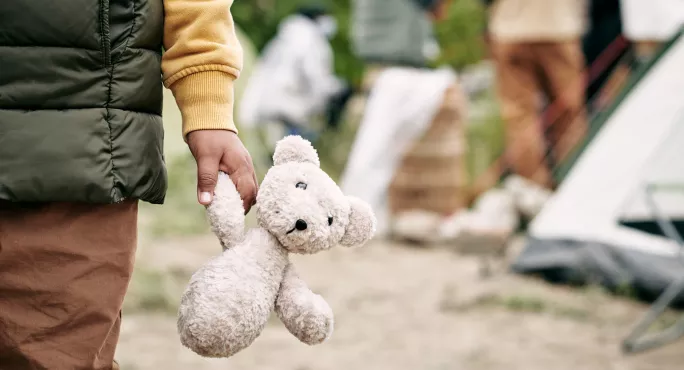How we helped settle over 100 refugee pupils

Today is World Refugee Day, an international day organised by The UN Refugee Agency to champion the rights of refugees to seek safety, build support for their economic and social inclusion, and advocate for solutions to their plight.
A big part of this is the role education can play in helping children not only have the chance to learn and succeed in their future, but to feel safe and secure in a new environment - something which helps their parents settle, too.
It’s something we at Cranbrook Education Campus (CEC) in East Devon have been actively involved in over the last seven months as we have worked to support 104 families seeking asylum who were originally relocated to a hotel in East Devon.
While we don’t claim to have all the answers, here are some ways we have worked with these pupils and their families that we have seen have a positive impact.
1. An integrated hub
We are fortunate that on our campus we house a community support hub called EX5 Alive that works alongside the school to help improve quality of life for children, young people and families in Cranbrook and East Devon.
As such, when families seeking asylum started arriving in the area, both the school and the hub leapt into action to provide them with integrated community support.
For example, working with the hub and East Devon District Council (EDDC), we appointed an English as an additional language (EAL) refugee coordinator as a liaison for all pupils and their families seeking asylum. The funding came from EDDC as part of the central resettlement funding and we recruited for the position.
The role has given pupils a familiar adult to liaise with and provided them with someone they feel supports and listens to them.
The EAL refugee coordinator has worked with a number of external agencies to support our refugee pupils and their families, including CAMHS, Devon and Cornwall Victim Support, The Olive Project (which provides specialised support to minoritised victims) and Refugee Support Devon.
While not every school will have a community hub on site, having close connections with other agencies such as the district council, local public health nursing team and the county council’s transport department is vital to provide an integrated support approach.
2. Teacher training and translation
One important aspect for us as a school was to quickly understand the learning level of these pupils so we could tailor lessons accordingly.
To do that, we conducted 100 EAL assessments and put strategies in place that allow us to track their progress.
Furthermore, 28 teachers have also been given training on the impact of having an EAL-friendly classroom, which benefits our existing children with speech and language needs, too.
Translating documents for pupils and their families has also been important, with over 1,000 documents translated so far, all done in house by the EAL refugee coordinator and our in-house EAL team.
These translations have focused on classroom materials, educational documents, school policies, attendance letters and documents for parents’ evenings to help families understand how we operate and feel part of the community.
As part of that, we also provide uniforms for these pupils so they feel part of the community from day one.
3. Health support
Ensuring refugee children get the health and wellbeing support they need has also been key. From vaccines to sexual health matters, we have supported pupils with whatever they need.
Our EAL refugee coordinator has also helped to make many referrals, including multi-agency safeguarding hub (MASH) and sexual assault referral centre (SARC) referrals, as well as supporting students and their families to access mental health support and emergency dentist and GP appointments.
In some cases, we have arranged for pupils to be transported to and from medical appointments with a translator. Some of this was done with one of our Spanish-speaking members of staff when that worked, or our EAL coordinator worked with social care and other agencies to book translators when needed.
4. A welcoming home
Of course, settling refugees from diverse communities into a rural setting can generate other challenges.
We have made efforts to ensure that all pupils’ religious requirements are supported by providing a place for prayer. Working with local places of worship that provide donations for refugee families has also helped them to build connections in the local community.
We have run cooking activities after school to give our pupils seeking asylum the opportunity to cook meals of their choosing with the ingredients provided.
We have also worked to welcome them to Britain and introduce them to our culture, including a school trip to the pantomime and by taking part in events such as sports days.
Stephen Farmer is head of Campus at Cranbrook Education Campus, part of the Ted Wragg Trust
For the latest education news and analysis delivered directly to your inbox every weekday morning, sign up to the Tes Daily newsletter
You need a Tes subscription to read this article
Subscribe now to read this article and get other subscriber-only content:
- Unlimited access to all Tes magazine content
- Exclusive subscriber-only stories
- Award-winning email newsletters
Already a subscriber? Log in
You need a subscription to read this article
Subscribe now to read this article and get other subscriber-only content, including:
- Unlimited access to all Tes magazine content
- Exclusive subscriber-only stories
- Award-winning email newsletters
topics in this article



